When I went up to Northampton last year to interview Alan Moore for a feature I confided to him that I only got nervous about interviews that happened outside of London. That if I had to travel somewhere away from the usual raft of record labels, cafes, pubs, hotels and restaurants in Zone One of the capital then it usually signified something out of the ordinary. For example, the nerves had hit me bad when I travelled to meet Mark E Smith in Manchester and Billy Childish in Chatham. Despite being a multi-million selling author of such singular works as Watchmen, From Hell and V For Vendetta Moore has never let commercial reasons take him from Northampton, let alone inspire a permanent move to a media-friendly metropolis like London or New York.
After the interview he walked the photographer Dave Ma and myself back to the train station, holding forth on local history in a most amusing manner. As we walked past the Northampton Guildhall he pointed out a crest belonging to Lawrence Washington, a local wool merchant whose family moved to the Americas and sired the first President of the United States. We passed a man sitting on the floor outside a boarded up shop with a plastic cup of coins next to him. Moore stopped to talk to him for a while before pressing something into his hand. As a journalist you can interpret such acts of largesse in many different ways but I do know that both men were on first name terms. He could be an ambassador for the town – or rather for the people of the town, for his warts and all view of it is one born out of a desire for improvement and would probably not sit easily with some of those elected to local office. Those with a duty first and foremost to party and commerce.
By his own admission his love for his home town and its people has grown over recent years. What was once mainly a handy way for him to remain anonymous and able to pursue his own singular path in life as a writer, magician, folk philosopher, psychedelic bon viveur and psychogeographer has blossomed into a desire to engage with the local community – not primarily as an act of hobbyism or philanthropy but as a radical political statement. Nowhere is this more clear than in his local underground magazine Dodgem Logic which was born out of a frustration with the way that his neighbours were being treated and a wish to give them a voice. People who only know him for his popular comics might at first be confused at the content of interviews, recipes, fiction, puzzles, counterculture and local news but the canny will recognize his maverick intent. Now eight issues old, the writing, photography, illustration and design is mainly provided by Northamptonshire’s finest (citizens not policemen), although there have been a few contributing guests such as Michael Moorcock, Simon Munnery, Josie Long, David Quantick, Stewart Lee and Kevin O’Neill along the way.
Although all the issues have fantastic covers – the photography of burlesque dancers for issue two and a picture of two male lovers embracing, rendered as if by an LSD powered Aubrey Beardsley for issue four – my favourite is the one of Phil Barton, a former merchant seaman and resident of the Spring Boroughs wielding a hatchet and his pet ferret. The redoubtable Mr Barton spent years complaining to the local council about the lack of sufficient heating in his block of flats over the winter period and then, after his friend and neighbour died of hyperthermia and council officials broke into his flat, he paid a visit to their offices to make a very visceral protest.
If you’re thinking that all of this has a vague whiff of Class War about it, then you wouldn’t be completely wrong but you certainly won’t be reading about "hospitalized coppers" in DL. The main point is it’s probably fair enough to say that your local paper isn’t running stories on these issues. In fact if you want to read stories about corruption or, let’s say shady dealings, going on in local government you have to look for something as centralized and, relatively special interest, as Private Eye‘s Rotten Boroughs column. Or if you’re lucky you’ll have a dedicated blogger who covers local politics in detail. But given that very little light is shone in such areas by the local and national media in general this is where malpractice and corruption flourish. So hurrah for Dodgem Logic and shame on us for taking so long to get behind, this perversely out of step, but thunderously righteous venture. Look to the foot of the article for details on the current issue and how to get back issues.
Interview with Alan Moore
Alan, do you think on the quiet, you’re a lot more of a traditional Englishman than people might presume?
Alan Moore: Well it depends on which English tradition you’re talking about… I like to think of myself as a traditional Englishman, at least in so far as the traditions of Northampton go. But we have been on somebody or other’s shit list since about 1263. I think it was Henry III who first had it in for us and we only made matters worse by supporting Cromwell during the Civil War; we made the boots for the New Model Army – for which I don’t think we were even paid! And then of course Cromwell turned out to be even worse than Charles I and he only lasted for 15 years before he died and his son fled to the Continent. Then we had Charles II back on the throne who didn’t look favourably on us and he pulled down the castle. I guess he took it to heart that ‘we’ had chopped his dad’s head off.
I used to live in Hull which took also played a maverick role in the English Civil War…
AM: That’s where I’m going at the weekend.
One of your daughters lives in Hull right?
AM: That’s right, I’m going to see Amber [Moore] and Dominic in Hull and Leah [Moore, Amber’s sister] and John will be over from Liverpool and I’ll get chance to see both of the new grandchildren at the same time. It will be a quick lap of the gene pool.
Well, I’m from St Helens and then moved from there to Hull, which I guess are not glamorous places… even to those who live there but it did get me thinking that some of the best interviews I’ve done – and most nerve wracking – are where I’ve had to go to where someone lives like Mark Smith in Prestwich or Billy Childish in Chatham…
AM: Local boys.
What are the pros and cons to someone like you living where you grew up?
AM: These days, especially since I’ve started work on Dodgem Logic, I am becoming fanatically local. I used to be just local in the ordinary inbred sense but these days I’m seeing it more as a political position. A socio-economic position. I was reading something by a futurologist who said that some years ago he’d greatly upset a convention of futurologists by suggesting that politics and economics in the future were more likely to be localized than globalized but this was before the great financial melt down and nowadays people were tending to agree with him more. I think that’s where it’s going. With our issue five of Dodgem Logic we had this brilliant piece that Mitch Jenkins – who I worked on Unearthing with – suggested we do. We went down to Spring Boroughs, the benighted district that both the magazine and me emerged from. We did a photo shoot with the people who live down there but as the magazine Vanity Fair would. The way that they do the Hollywood issue…
With the fold out cover?
AM: Yeah. There is that assumption that anybody featured is one of the great and good and is worthy of having their image on the cover of this prestigious magazine. So we just did that with the people who are living down in the Boroughs. The cover star is a man called Phil Barton saying how he’d finally got fed up with the council refusing to do anything with the failing heating systems in his block of flats every winter for the last ten years. And he’d complained about it most vociferously when his friend died of pneumonia. This happened during a three or four day period over Christmas when there was no heating or radiators or hot water. His protests had been ignored. Later in the year he finally got the council to do something about the leak in his radiator. They came round when he wasn’t there, broke in and when they left, changed the locks on his door. Phil got a little upset by that so he took a billhook down to the town hall and sunk it into one of their wooden tables, kicked a security guard in the balls and only got a two year suspended sentence because, frankly, everyone could see where he was coming from!
Quite.
AM: So we had Phil as our cover star with a hatchet in one hand (the billhook got taken off him and is still in the evidence lockers at the police station) and one of his ferrets in the other hand. He’s a magnificent figure of a man. And he made a great front cover celebrity. And this is all another way of saying the culture of celebrity is to a certain extent, over. If it’s been devalued to the degree it currently has, then of what worth is it? And also it is saying that globalisation is over. It didn’t work. We have to look after the places where we actually live. In first life, not in second life. The actual neighbourhoods that surround us, the people who make up our communities. We have to start understanding this in a global context but in this internet age that shouldn’t be so difficult to do. I think this is the way we should be going. Whether it’s the way we will be going, I don’t know. But that kind of concentrating on the place where you actually are, where you are actually standing and the people around you, that seems to me, is what we should be doing in the future.
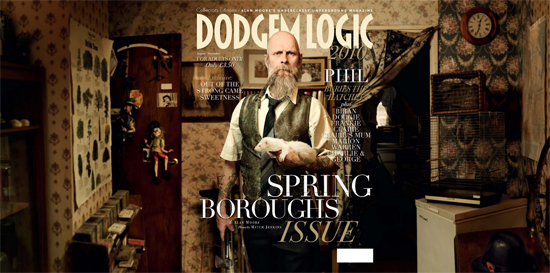
Does this tie in with how you feel about the internet. I find it slightly odd that someone who is renowned for working in speculative fiction, near future writing and alternative history doesn’t seem to be that interested in the internet.
AM: I’m practically Amish when it comes down to it. I pretty much mistrust any technology that came after the buggy. What I tend to think is that the internet is fine for everyone else in the world. I can see that it may have some disadvantages. In fact I can see a few problems arising from it, but by and large… my daughters use the internet… in fact everybody in the entire world apart from me uses the internet and seems to get on quite well with it. For my part I don’t want to be connected to that kind of all pervasive kind of cyber culture any more than I want to be connected to the physical world [laughs] more than I can help it. It’s more than I can control. I’m largely a solitary creature just by nature and by my work. That said I venture out into town where people are pretty much used to me by now and it’s not a big deal. I very seldom leave Northampton. I go down to London occasionally or if I’ve got gigs or performances somewhere then I’ll go there but this is how I like to place myself within the world. At this centred, still point. If I was moving around as well, at the speed the world is moving around as well, man, I think I’d get dizzy but by staying still I can watch the way that the world is moving around me.
Is it important that not only is Northampton close to the physical centre of the UK but as it has gone through the last two or three decades it now looks like a lot of other places in Britain. It looks like Sheffield, it looks like Gillingham, it looks like Truro. The pedestrianisation of the shopping section of town, the chain shops moving in, the local family run businesses moving out…
AM: That’s it. They pedestrianized the main drags, so you get a decrease in traffic. You get shops closing down because the rents are still disproportionately high but the trade isn’t there any more… You could even be forgiven for thinking that some of these councils are actually trying to divert the life and activity away from town centres to the more profitable retail parks which are surrounding most of our conurbations nowadays. That certainly seems to be the case in Northampton. We are promised developments but these are only in the hope of making the town as soulless as Milton Keynes so that we can compete with them for custom and tourism. It’s never going to work. You’re never going to get people saying ‘Let’s go to Northampton and see the marvel of the Express Lift Tower or the backwards bus station.’ When they built the bus station they had the plans the wrong way round so they built the entire bus station backwards. There is almost something heroic about their stupidity on this level. As I said in the editorial of the first issue of Dodgem Logic, yeah, we’re basing this in Northampton on the understanding that one dilapidated and abused shit hole is pretty much identical to another one. We’re all practically living in the same place. There has been a great levelling. We have the same brand names reiterated in all of our shop front furniture. The same chain stores in every town and like you say, all of them are pedestrianized. All of them have the surveillance cameras. Although probably not to the same degree to which we have them here. Northampton has always been a bit of a laboratory for social experiments so we’ve got ones that talk. Y’know, they say things like ‘Pick that cigarette butt up. Yes you, the one in the anorak.’ It’s this kind of sub-Orwellian theatrics that just make people more annoyed than anything else. They don’t do anything about the crime figures, or people’s behaviour or people’s levels of happiness.
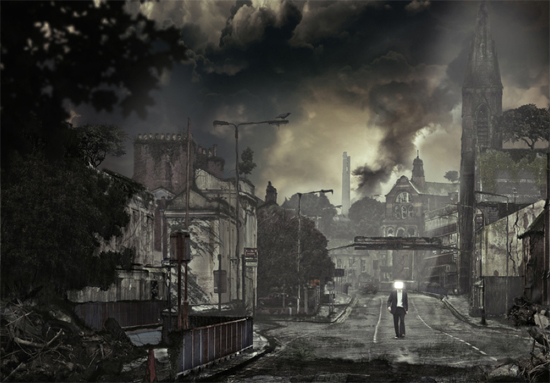
How much does Dodgem Logic owe to the fact that you’re a child of the counter-culture and reached young adulthood when outsider magazines were thriving?
AM: With Dodgem Logic we are committed to re-establishing – as much as we are capable of – an open psychedelic culture like the one that was around in the 60s. Not in a retroactive sense. We’re not trying to recreate the 60s. We’re just trying to recreate some of the possiblilities that existed then. We had a psychedelic summer issue with John Coulthard doing a beautiful cover and an article about psych culture. And we’re continually trying to reintroduce the idea of hipsterism which was an elitist thing but also useful. If you were a school boy and you went to a party and someone said, ‘Have you read Sartre?’ And you said ‘Huh, of course!’ then you’d run home and you’d read up on Jean Paul Sartre and perhaps read one of his books and then the next time you were at a party you could say ‘Of course Nausea is my favourite!’ Yes, alright, it was introducing a kind of social pressure and it was elitist but it gave you an education.
It’s seen as a purely disparaging, pejorative term now, based solely on the style of one’s glasses, the width of one’s trousers and whether one chooses to wear a V-neck or not.
AM: Yeah. Yeah, that’s probably true. It used to be a fashion statement but it was information as a fashion statement which is probably going to do you more good than the clothing you wear. I got an incredible education from when I was thrown out of school. Starting at that point. Now I could say that I probably hold my own intellectually with most people who have had university or college educations. And indeed some of them will have done courses on my books. So despite the fact my ‘education’ ended at 16, I had hipsterism – wanting to be hip – which led me to read this incredibly diverse array of books on science, mysticism, science fiction, literature, art… And it’s given me a pretty comprehensive education. And now I am an autodidact, which is a great word… I learned it myself. But I think it’s the best way to be and I do think we can educate ourselves if we’ve got the material there, if we’ve got a library card or these days if we’ve got an internet connection. But it’s important to have the impetus to educate ourselves, which for me came from the type of society we were part of in the 1960s. That was the case in those days and I’m not sure if that still applies.
I’m always tempted to mispronounce the word autodidact. But where did this come from? I always think you run the risk of coming across as bit old or out of touch if you say this but..
AM: Go for it John!
… Ha ha! But where did this conservatism come from? I don’t think much is pretentious about modern life. In fact I wish more things were pretentious. But you hear the word pretentiousness being uttered at the drop of a hat these days. Where did this conservatism about people having ideas above their station come from?
AM: Well, it was kind of… I can remember back in the 60s there was a little bit of a bitchy feud between Private Eye and Oz. I think that David Widgery had written a critique of Private Eye where he’d said that they were so frightened of real intellectuals that they had to label all of them pseudo intellectuals. Which as much as I enjoy Pseuds Corner in Private Eye, I think has an element of truth in it. Some of the stuff in there is of course pretentious and ridiculous. But sometimes you read something where you think, ‘Well, I kind of agree with that. I can see where they’re coming from. The language that they’re framing it in is perhaps not that of ordinary discourse but I can see what they’re saying.’
They give away the areas that they do and don’t understand in Pseuds Corner. They don’t get music right in my opinion. [Since this interview the author has been featured in Pseuds Corner, so maybe they do "get" music, Ed] They get it dead right with the corporate, PR and political stuff though.
AM: Yeah, there was something in there about Patti Smith a few weeks ago and I thought ‘Do you know, I agree with this completely. It’s a good description of Patti Smith and her music.’ I think that what happened was back in 1968 and 1969 it all seemed so full of possibilities and then it all seemed to collapse there were a couple of mortal blows, Charles Manson, Altamont, the usual suspects, that dented everyone’s enthusiasm but there were also growing political divisions were opening up. There was a lot of bickering. You had the traditional left wing who were dismissive of the psychedelic left wing. You had a wonderful piece of work called ‘Ah! Sunflower’. It’s a recording that Iain Sinclair made back in 1969 or 1970 when Alan Ginsberg was in the country. They were in contact and Iain did a short film about the writer which featured The Congress On The Dialectics Of Liberation that happened at the Roundhouse. You had Allen Ginsberg, R.D. Laing, you had the Diggers from San Fancisco and there was Stokely Carmichael, one of the black leaders of the period. There was a lot of tension, with him dismissing the white underground as irrelevant to the struggle of black people. Ginsberg is being very calm and saintly throughout saying that people should be working together. And you had the feminist divisions as well. I’m not saying these things were not needed but they tended to fracture the underground.
People were left isolated in provincial towns where most of their friends had probably decided that yes they’d done their bit during the summer of free love and the psychedelic 60s and now it was time to grow up and take life more seriously and think about that job. They got on with their lives. And again there’s nothing wrong with that but it did tend to leave a lot of people who didn’t perhaps have those options stranded. I was one of the people who felt kind of stranded in Northampton. You felt it dwindle to people mostly becoming petty criminals, junkies… and this was most of my acquaintances! And, yeah, a few artists but mostly living in reduced circumstances. With my own expulsion from the grammar school there wasn’t any chance of me getting any further education because the headmaster had taken a dislike to me and had written to all the other schools saying ‘He’s a drug dealer, don’t take him.’ Which was great because that forced me back on my own resources. And that was probably the most significant thing that’s happened to me in my life. The fact was there were no other opportunities. I had to either had to make it on my own terms or go under. Which is a great incentive.
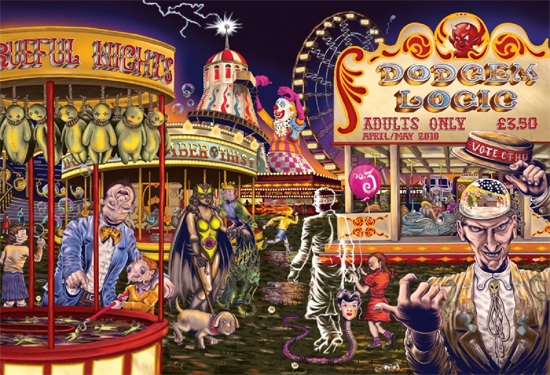
This is really interesting as it ties back in with the hipster stuff. I’ve got to say that as a rock journalist I pine for the days when we had music magazines that you had to aspire to be able to read, rather than a culture that mainly favours magazines that aim themselves at the lowest common denominator.
AM: Yeah because it creates a lowest common denominator culture.
Also it’s not set in stone because it creates a feedback loop. Once you go down that route things can only get progressively worse.
AM: And people will make assumptions. People make the assumption, ‘Well, our readers are kind of stupid and don’t want anything better than this.’ And eventually that will be all there is to choose from and you’re getting the feedback loop that you’re describing and it will get worse and worse until we end up with big brother or something of that ilk.
Are you a socialist or Marxist or…
AM: No. I’m an anarchist. I probably have leanings towards socialism in that it has the most heart of the available political positions. In the second issue of Dodgem Logic I did a big feature on anarchy and I’m closer to Mikhail Bakunin when he said to Marx something along the lines ‘Yeah, your ideas are great but a Marxist revolution would just end up replacing the ruling powers with more ruling powers.’ Which Marx fervently disagreed with but it turned out to be the case. So, yes, I’m an anarchist and I think I always will be.
How did you meet Queen Calluz?
AM: I met her when she was wrangling the young offenders down the Boroughs. She’s a graffiti artist. They’d formed a hip hop posse, done a film about the area. I got involved with them and thought they were great kids. We did a little magazine that was circulated in the schools. I submitted an article about the real problems in the area which are mainly down to council neglect which they refused to print on grounds that it was… the organization that she worked for was partly council funded and it was critical of the council. So I said well let’s do our own magazine. Let’s do an underground magazine and she said, ‘What’s an underground magazine?’ Because she’s younger and she’s never heard of these things. So I said it’s like a fanzine and she said, ‘What’s a fanzine?’ So it all grew from there.
In a way I guess that given that a lot of outsider political and social discourse has been taking place on the internet over the last 15-years, albeit in a very atomized format, having it back in the print medium is a pretty radical thing it itself.
AM: So I’ve been told. It was just the first thing that occurred to me. I like artifacts. The beautifully produced artifact. As it becomes a increasingly more virtual culture these things are going to become increasingly more precious. I just wanted to produce something that people could hold in their hands. That they could read in the bath. That they could lounge with on the sofa. Something that wasn’t emitting light into their eyes. Something that was printed on paper using a naturally reflected light source. The printed page. Yeah, I’ve got nothing against online magazines but they’re not for me. I like the smell of old paper, that is one of my fetishes.
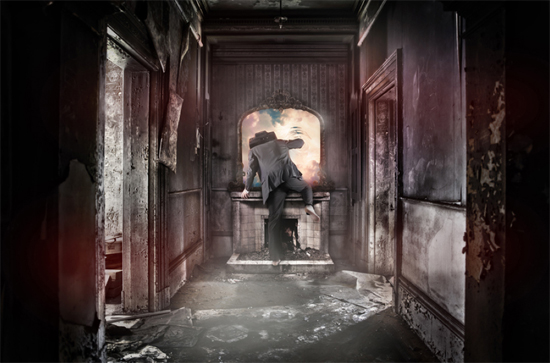
Interview with co-Editor Queen Calluz
What were you doing when you first met Alan and the idea of a magazine came about?
Queen Calluz: I used to run the Caspar Project which organized youth activities, while Alan was working with a group of musicians on a project called X Marks The Spot at a local museum. We were working with the same young people really. We encouraged the group to start their own magazine called OVR2U which was written by and for people aged 13 to 19. We printed a couple of issues but we experienced some problems… Alan wanted to publish the Destructor piece, which is something that ended up going in issue one of Dodgem Logic. Because the Caspar project was run in partnership with Northampton Borough Council [NBC] we were discouraged from printing the article. The article challenged NBC and made allegations that residents were being housed in inappropriate accommodation. We also reported that fire safety laws were being breached by NBC and that some of the accommodation that these residents were in had actually been condemned by the Fire Service. But because of who the funders were, we weren’t able to. We felt it was important that we were able to print this article and that we weren’t being gagged. And that’s how Dodgem Logic was born.
What’s the traditional media for Northampton like?
QC: Well, we’ve got our local newspapers, there are various other local fanzines and bits and bobs like that. There is quite a lot that goes on but you very rarely see an independent publication, something that’s completely self-published and doesn’t adhere to any red tape at all. So we’re really quite unique.
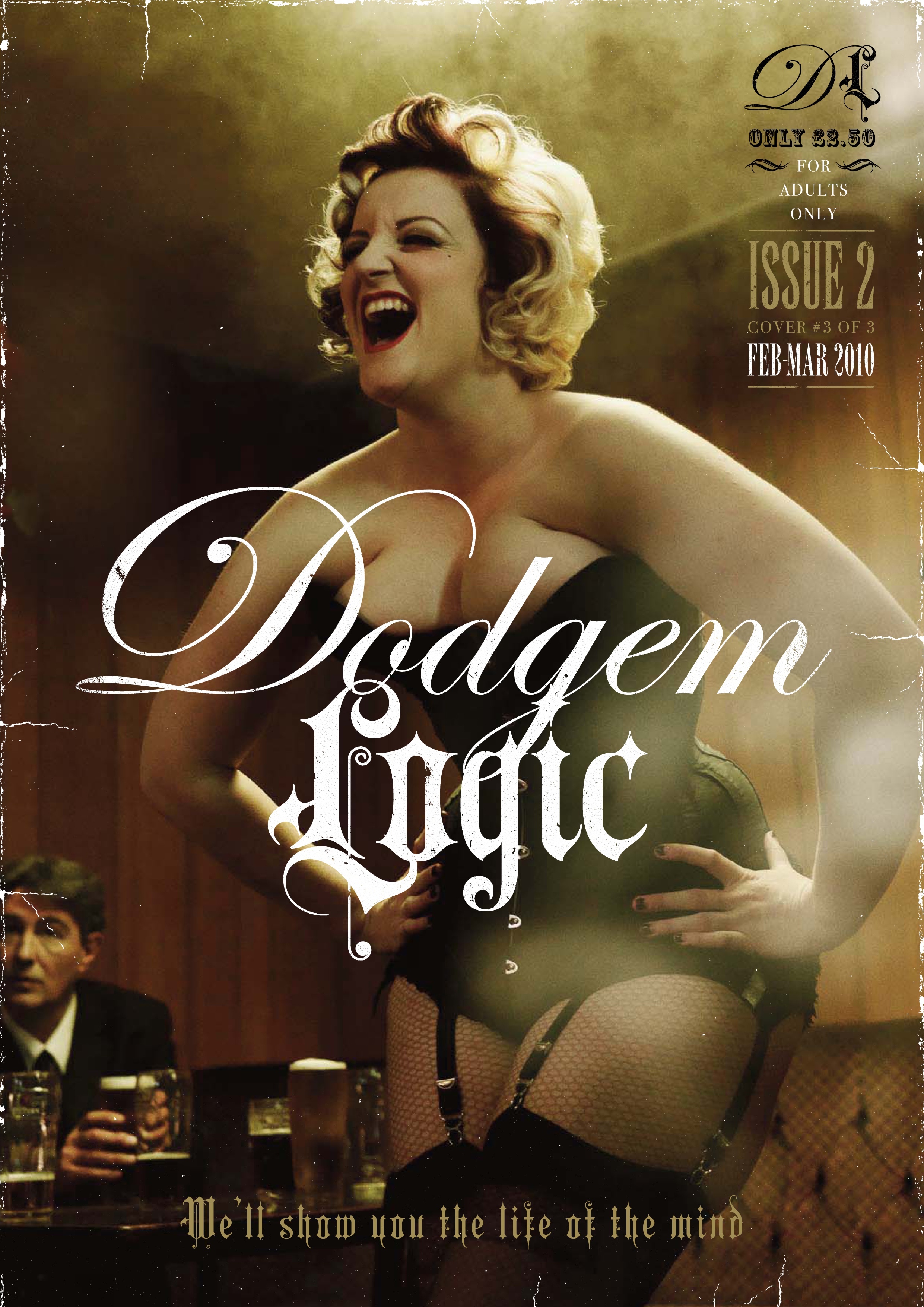
What difficulties did you face in setting the magazine up?
QC: Oh gosh… Even though Alan’s published a lot of work, he’s never actually self-published as it were. It was new to both of us. So, initially it was getting to grips with how to run a magazine. I think also we were having to manage our own expectations. We are both such big romantics and we had such big ideas about what we wanted to do. And we were able to do that but running a magazine is extremely expensive. If you’re not getting in any other revenue from any other sources – it was all paid for by Alan – it was extremely expensive. So that was the most difficult thing; getting to grips with how much it cost.
Obviously Dodgem Logic has a very tight local focus but do you get feedback from people outside the area?
QC: Of course… Dodgem Logic has a massive circulation. Whilst we have a local focus the magazine is circulated outside of the UK to the US and various other countries. Some people love the magazine and the articles, some would prefer to see more comic strips. Because Dodgem Logic was such a new thing, especially for fans of Alan Moore, I think their expectation was that it would be a magazine full of comic strips but it’s not. Some people may have struggled with that but generally people are positive so we’ve been pretty lucky so far.
Do you get emails from people wanting to set their own local magazines up?
QC: We’ve had emails from a few people who run fanzines and from other people getting feedback for features so not really however I would be interested in receiving emails about that because since has been set up independently and we’ve really had to find our own feet in the magazine industry, it’s been a steep learning curve and we’ve got there in the end. So we would welcome that because maybe another magazine could learn from some of our mistakes.
Issue Eight of Dodgem Logic is in the shops now and issue nine will be out in the new year. Click here for back issues and more information.
Alan Moore and Steven O’Malley will be creating a live soundtrack to Harry Smith’s Heaven And Earth Magic at the Portishead curated ATP festival, I’ll Be Your Mirror this weekend at Alexandra Palace



